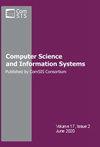Machine learning-based intelligent weather modification forecast in smart city potential area
IF 1.2
4区 计算机科学
Q4 COMPUTER SCIENCE, INFORMATION SYSTEMS
引用次数: 0
Abstract
It is necessary to improve the efficiency of meteorological service monitoring in smart cities and refine the prediction of extreme weather in smart cities continuously. Firstly, this paper discusses the weather prediction model of artificial influence under Machine Learning (ML) technology and the weather prediction model under the Decision Tree (DT) algorithm. Through ML technology, meteorological observation systems and meteorological data management platforms are developed. The DT algorithm receives and displays the real meteorological signals of extreme weather. Secondly, Artificial Intelligence (AI) technology stores and manages the data generated in the meteorological detection system. Finally, the lightning monitoring system is used to monitor the meteorological conditions of Shaanxi Province from September to December 2021. In addition, the different meteorological intelligent forecast performance of the intelligent forecast meteorological model is verified and analyzed through the national meteorological forecast results from 2018 to 2019. The results suggest that the ML algorithm can couple bad weather variation with the existing mesoscale regional prediction methods to improve the weather forecast accuracy; the AI system can analyze the laws of cloud layer variation along with the existing data and enhance the operational efficiency of urban weather modification. By comparison, the proposed model outperforms the traditional one by 35.26%, and the maximum, minimum, and average prediction errors are 5.95%, 0.59%, and 3.76%, respectively. This exploration has a specific practical value for improving smart city weather modification operation efficiency.智慧城市潜力区基于机器学习的智能人工影响天气预报
提高智慧城市气象服务监测效率,不断细化智慧城市极端天气预测。首先,本文讨论了机器学习(ML)技术下的人工影响天气预报模型和决策树(DT)算法下的天气预报模型。通过机器学习技术,开发气象观测系统和气象数据管理平台。DT算法接收并显示极端天气的真实气象信号。其次,人工智能(AI)技术存储和管理气象探测系统中产生的数据。最后,利用雷电监测系统对陕西省2021年9 - 12月的气象条件进行监测。此外,通过2018 - 2019年全国气象预报结果,验证分析了智能预报气象模式的不同气象智能预报性能。结果表明,ML算法可以将恶劣天气变化与现有的中尺度区域预报方法相结合,提高天气预报精度;人工智能系统可以结合现有数据分析云层变化规律,提高城市人工影响天气的作业效率。通过对比,该模型的预测误差比传统模型高35.26%,最大、最小和平均预测误差分别为5.95%、0.59%和3.76%。这一探索对于提高智慧城市人工影响天气运行效率具有特定的实用价值。
本文章由计算机程序翻译,如有差异,请以英文原文为准。
求助全文
约1分钟内获得全文
求助全文
来源期刊

Computer Science and Information Systems
COMPUTER SCIENCE, INFORMATION SYSTEMS-COMPUTER SCIENCE, SOFTWARE ENGINEERING
CiteScore
2.30
自引率
21.40%
发文量
76
审稿时长
7.5 months
期刊介绍:
About the journal
Home page
Contact information
Aims and scope
Indexing information
Editorial policies
ComSIS consortium
Journal boards
Managing board
For authors
Information for contributors
Paper submission
Article submission through OJS
Copyright transfer form
Download section
For readers
Forthcoming articles
Current issue
Archive
Subscription
For reviewers
View and review submissions
News
Journal''s Facebook page
Call for special issue
New issue notification
Aims and scope
Computer Science and Information Systems (ComSIS) is an international refereed journal, published in Serbia. The objective of ComSIS is to communicate important research and development results in the areas of computer science, software engineering, and information systems.
 求助内容:
求助内容: 应助结果提醒方式:
应助结果提醒方式:


